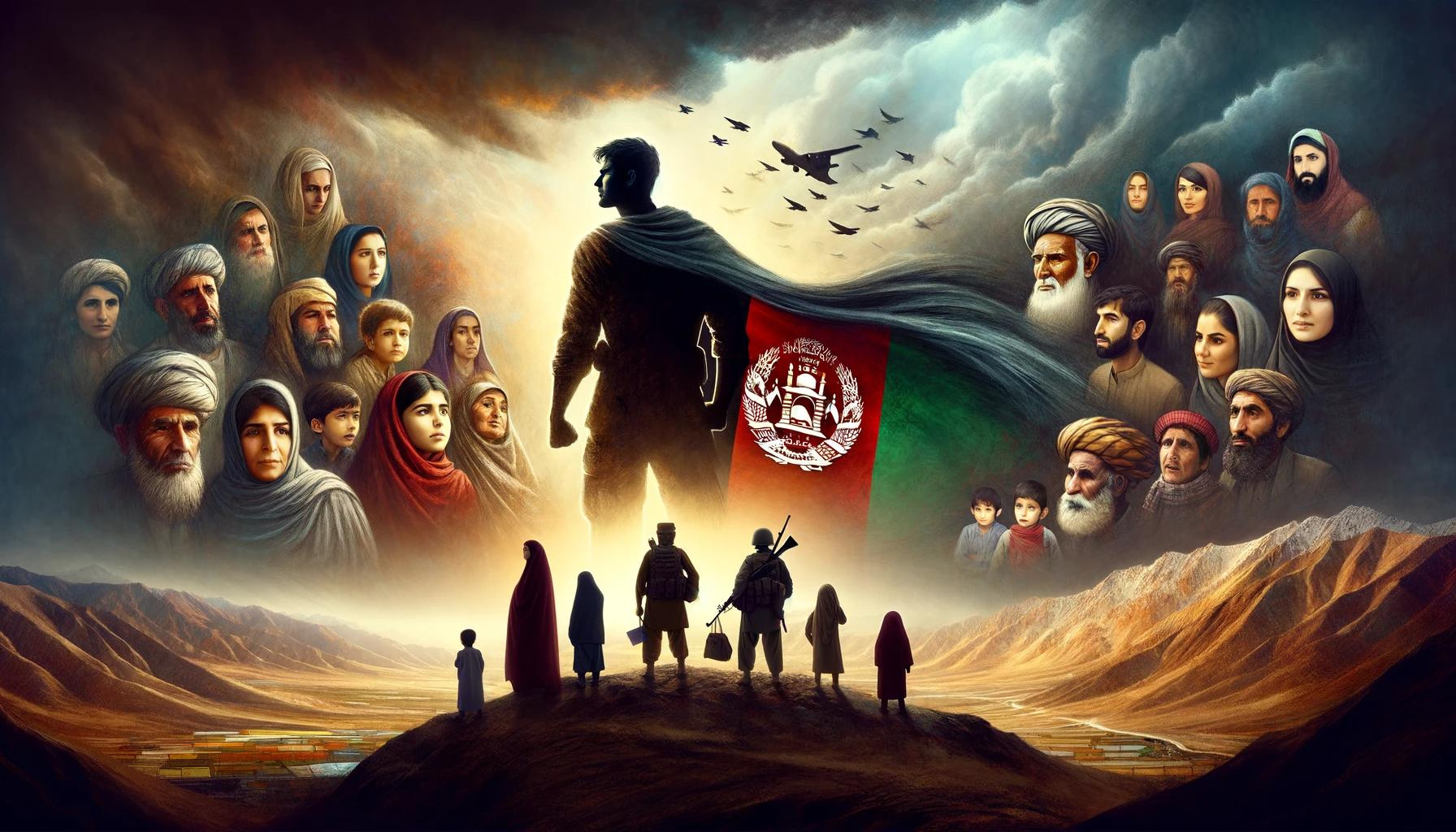Afghanistan’s Struggle: The Path to Freedom with the National Resistance Front
By Anna Chan | June 12, 2024 | publications@wearenrf.org
The withdrawal of international military and civil support to the Islamic Republic of Afghanistan in August 2021 ushered in the regime we know today as “the Taliban.” Much dialogue revolves around assigning blame to those responsible for one of today’s worst ongoing humanitarian crises. Realistically, no single country, government, or individual will voluntarily take responsibility for this disaster. Blame over the USA’s military withdrawal from Afghanistan already promises to factor heavily into every presidential candidate’s attacks, imploring taxpayers to feel outraged about their tax dollars funding a 20-year war that “could not be won, because…” etc. Another discussion about what was and wasn’t inevitable in the Republic’s collapse in 2021 easily ensues.
Meanwhile, in Afghanistan, starvation, disease, reprisal murders, and debilitating depression continue to take many precious souls from us. The loss of human life results as a direct cause and effect of the Taliban’s implementation of a governmental model contrived from self-serving interpretations of a world-renowned religion. Notably, in the past few months, the Taliban issued open proclamations even on major global social media platforms, affirming they will continue to rule Afghanistan as they see fit: public floggings and stoning of women; suffocating their own labor pools and starving their own citizens by refusing to allow women to earn a living to support themselves or their households; and imposing their bizarre system on the rest of the world. Some in the West hear and receive their message for what it is. However, the Taliban also send a sweet siren call to investors, reminding everyone of Afghanistan’s abundant natural resources and promoting a false sense of security and stability in the country. In aping legitimate, respected government operations, they release reports, such as "Islamic Emirate at a Glance Part II," intent on beguiling unapologetic profiteers to loot resources and encouraging enterprising non-governmental organizations to fund humanitarian projects.
From 2001-2021, the United States maintained a military and civilian presence in Afghanistan. Notably, after the withdrawal in 2021, it became popular to label the United States as “occupiers.” This opens an entirely new point of discussion. Regardless of the political position taken here, the fact is, the United States government poured billions of American taxpayer dollars into infrastructure projects intended for the continuous betterment of the country and its citizens, regardless of our duration there. While there were military elements whose missions did not encompass civil support, there were thousands of members of America’s armed forces who planned, implemented, and supervised the construction of roads, schools, village electricity and water supplies, and airports. Their mental astuteness and physical labor, pooled with their local and other transnational counterparts, facilitated a quality of life that is almost completely absent today in vast parts of Afghanistan. The Taliban saw fit to destroy billions of dollars in a meaningless show of force as they bombed and burned Afghanistan during those 20 years and after the withdrawal.
Everyone uses a certain “lens” to analyze and explain Afghanistan’s history, its present struggles, and its volatile future. The Past is mourned by many, the Present is bleak for many, and the trajectory is not hopeful for most ordinary citizens. Is it not time to exchange lenses for simple logic and reasoning?
Afghanistan’s population now consists primarily of individuals who are children and too young to work, women who are not allowed to work, and men who may not move about freely and work for fear of reprisal killings for their positions with the former republic. The Taliban have instituted an economic system unlike anywhere else in the world, and there are currently no legitimate long-term metrics supporting it as a viable pursuit in social stratification. Given an economic snapshot of Afghanistan’s current global rankings in poverty and human suffering, the group’s economic and social stratification policies are clearly failing with nothing to suggest a course correction without external financial intervention from governments and corporations.
The Taliban have stated themselves that they will not reverse course where needed and punctuated tyranny with their recent declaration criminalizing any other political ideology or representation – openly stifling participation from Afghanistan’s own citizens from achieving true peace and prosperity. The population has collectively gathered fortitude and resisted forced poverty, starvation, and even genocide. Armed and civil resistance against the Taliban flourishes even when the international community has stopped caring about the ordinary citizen, or worse, elected to justify supporting the very narco-terrorists they aided in resisting over the past three decades. Among the groups which prove capable and dedicated to opposing the Taliban is the National Resistance Front, whose ranks are comprised of well-educated leaders who favor military operations with efficiency for combating the enemy. Their disciplined approach of holding human life sacred through avoiding civilian casualties and extending grace appropriately to enemy survivors endears them to the local population as it should to the international community.
The most precious natural resource of any country is its own people, and as their stewards, the Taliban fail miserably. The people struggling for life in Afghanistan need leadership that truly represents their interests and safeguards their wellbeing. The native residents of Afghanistan at large will not succumb to slaughter, and the international community will ultimately have to reconcile with this reality. Under the leadership of Ahmad Massoud, the National Resistance Front of Afghanistan presents a logical, reasonable alternative to the Taliban and stands as the only hope left for the people of Afghanistan.

